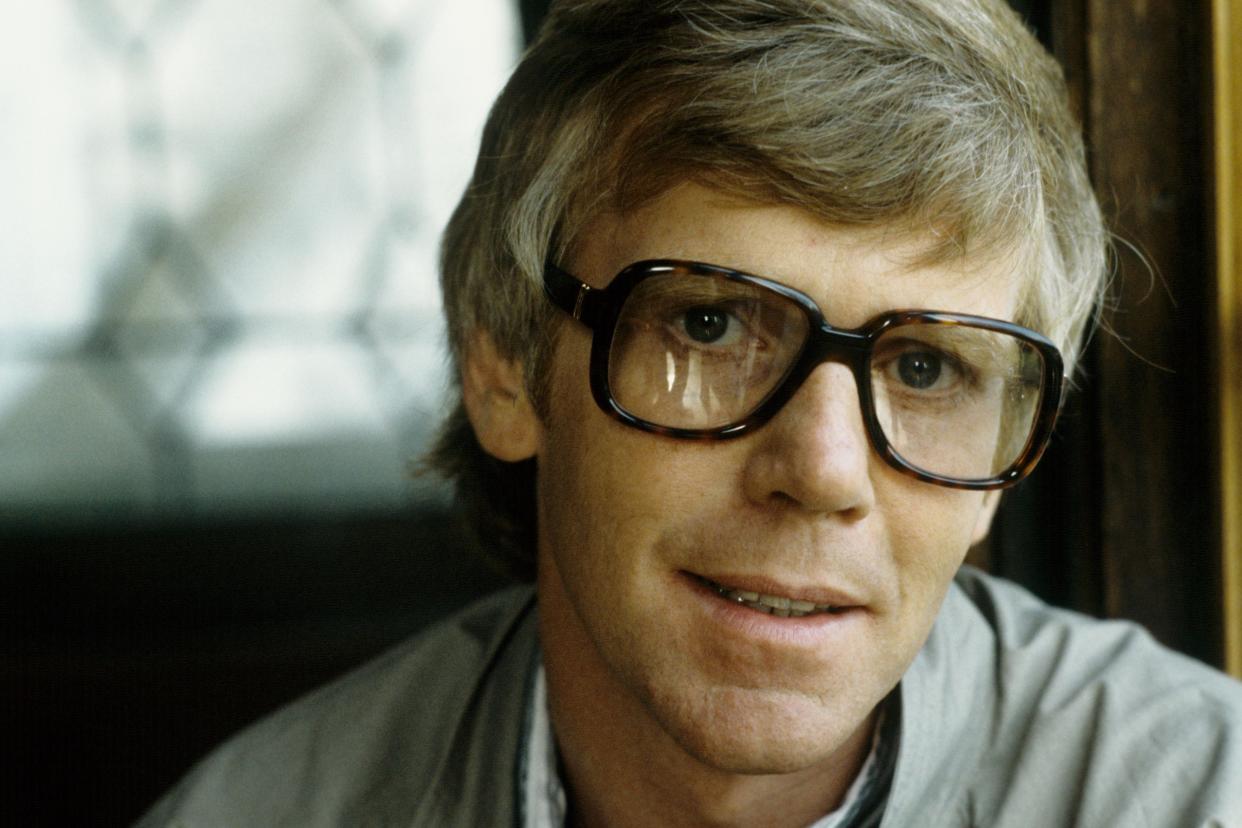Jeremy Bulloch: Actor who made Boba Fett a Star Wars fan favourite

Jeremy Bulloch, who has died aged 75 after suffering from Parkinson’s disease, made the difficult transition from child to adult actor and became a regular on television for two decades before landing the film role that made him a cult screen villain – Boba Fett in Star Wars.
The enigmatic character’s combat and martial arts skills, combined with his battered armour, cape, full-face helmet, jetpack and deadly weaponry, made him one of the galaxy’s most feared bounty hunters in the sci-fi movie juggernaut steered by producer George Lucas.
The cold, ruthless mercenary was also notable for his silent demeanour – “Boba Fett standing still is much cooler than saying a line,” said Bulloch – although his voice, when heard uttering fewer than 30 words over the course of two films in the original trilogy, was provided by Jason Wingreen.
Like Dave Prowse, who played Darth Vader, Bulloch’s face was unseen and his own voice unheard. His popularity with fans vied with that enjoyed by Prowse in The Empire Strikes Back (1980) and Return of the Jedi (1983).
Bulloch landed the role because he was literally the perfect fit. His half-brother, Robert Watts, from his mother’s first marriage, was working as associate producer on the 1980 film and looking for someone the right size for the costume.
Watch: Why Disney may test the limits of 'franchise fatigue' in 2021 and 2022
He went through the laborious, 20-minute process of putting the gear on and just a few minor adjustments were needed.
“It is not comfortable,” he said, “but you had to make it look as though it were – I suppose using a bit of acting. It was ripping your skin apart, but you know the character – he’s a bounty hunter and he’s not going to say, ‘I want a soft cushion!’ But the costume, gradually, I got used to.”
Cradling his gun, ready to shoot, and moving in slow motion were body-language traits that Bulloch borrowed from Clint Eastwood’s Man with No Name in the Spaghetti Western A Fistful of Dollars.
Bulloch regarded Boba’s demise, falling into a multi-tentacled Sarlacc’s mouth and apparently dying, as “weak”. Lucas later said he regretted not making it more dramatic and brought back the character – played by Temuera Morrison – for a spin-off TV series, The Mandalorian.
Nevertheless, Bulloch returned to Star Wars, face uncovered, with a cameo role as Captain Jeremoch Colton, piloting the Tantive III to rescue Jedi Masters, in the third prequel, Revenge of the Sith (2005).
In The Empire Strikes Back, Bulloch’s face had actually been seen in the fleeting role of an Imperial Officer grabbing Princess Leia (Carrie Fisher) as she tries to warn Luke Skywalker (Mark Hamill) of a trap.
Jeremy Andrew Bulloch was born in Market Harborough, Leicestershire, in 1945 to McGregor Bulloch, an aeronautical engineer, and Aziz (née Meade, known as Diana), whose father, Walter, followed his time as a British consul in Persia by writing screenplays, as WL Meade, for films such as Scott of the Antarctic (1948).
When Jeremy was young, the family moved to Bognor Regis, West Sussex. A promising rugby player, he was hoping to leave his prep school in Littlehampton with a scholarship to a sports college but failed the exam.

Instead, aged 12, he enrolled at the newly opened Corona Academy stage school, London (1957-63), and made his TV debut in a breakfast cereal commercial.
He and his older brother Nigel both played schoolboys in the film comedies Carry On Teacher (1959) and A French Mistress (1960).
Bulloch was also seen in two popular children’s TV series, as Mike Brown – starring with Michael Crawford – in The Chequered Flag (1960) and in later episodes (1960-61) of Billy Bunter of Greyfriars School as Vernon Smith, then Bob Cherry. In the 1964 Cliff Richard film musical Summer Holiday, he acted Edwin, one of the mechanics renovating a red London bus and taking it on a road trip.
He also landed roles in two BBC soap operas. In the women’s magazine serial Compact, he played Roy Carney for six weeks in 1965 before joining The Newcomers (1965-69) as Philip Cooper, the son of a London family moving to an East Anglian overspill town, and left just a year before it ended.
Bulloch then switched effortlessly between drama and comedy, showing his versatility by playing everything from Henry Percy in the 1978 BBC adaptation of Richard II and Edward of Wickham in Robin of Sherwood (1984-86) to Rob Illingworth, one half of a gay couple, in the sitcom Agony (1979-81) alongside Maureen Lipman’s advice columnist.

There were also roles in two Doctor Who stories, as Tor, leader of the Xeron rebels, in “The “Space Museum” (1965) and Hal the archer in “The Time Warrior” (1973-74).
On the big screen, he appeared in three brief sequences in O Lucky Man! (1973) as Malcolm McDowell’s alter ego.
He also had small parts in three James Bond films, as a submarine crew member on HMS Ranger in The Spy Who Loved Me (1977) and Smithers, an assistant to gadgets expert Q, in both For Your Eyes Only (1981) and Octopussy (1983).
Bulloch’s Star Wars fan following meant that he travelled the world to take part in conventions but, in 2018, as his health was failing, he announced his decision to “hang up the Fett hat” and no longer attend them.
The actor’s first marriage, to Sandra Ford in 1965, ended in divorce. He is survived by his second wife, Maureen (née Walker), whom he married in 1970, and his three sons, Christian from his first marriage and Jamie and Robbie from the second.
Jeremy Bulloch, born 16 February 1945, died 17 December 2020
Watch: 'Charlie's Angels' star Tanya Roberts dies at 65
Read More
Pierre Cardin: Designer who built a platform for 21st century fashion
John le Carré: Writer who turned espionage thrillers into an art form

